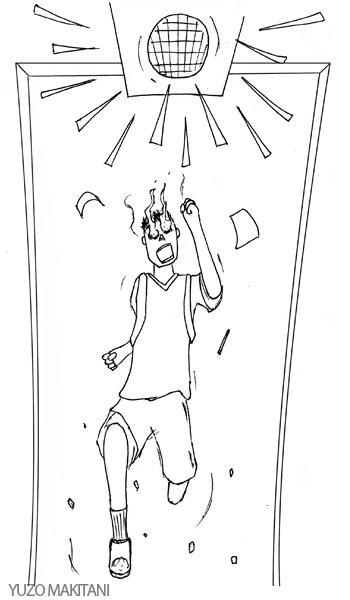
Saturday school brings to mind the iconic image of the actors in The Breakfast Club dancing on the library tables; Aragon’s Saturday school, on the other hand, aims to take a much more serious approach.
The new tardy policy at Aragon dictates that after receiving five tardies, the student must attend Saturday school. The four-hour sessions are held every Saturday. After the fifth tardy has been given, the student in question must attend Saturday school at the end of the same week the fifth tardy was received, “If students come and speak to me in advance about a conflict, then arrangements can be made. Rescheduling is a possibility… it’s not etched in stone,” says Dean Michael Valmonte on scheduling conflicts with Saturday school.
Despite any criticism that the new policy has faced, there is quantifiable evidence to say that the tardy policy has improved timeliness. In the fall semester of 2009, (August 17-December 18), 12009 tardies were recorded from 1131 different students. In the fall semester of 2010, (August 16-December 17), 9614 tardies were recorded from 1102 different students. The number of tardies went down by 2395 tardies and 29 less students were recorded as being late to class.
Students have varying opinions on the policy itself. Freshman Nicole Horita says, “I know that it makes most people want to be late less. [The policy is] semi-successful in that it has turned some people off of being late to class, but there are still the same people who will always be late.”
In reference to Saturday school, English Teacher Victoria Daniel says, “While I wish repercussions were more immediate and students served detentions the same day, there are complicating issues. I realize that it is not practical or doable.” Daniel says, “I think that getting the parents to be involved in the process would be extremely beneficial.”
Many say that Saturday school is not enforced for all students who should attend. Freshman Paige San Felipe says, “I’ve heard plenty of friends say that they have just not gone to Saturday school and they have definitely been late five times before.”
English Teacher Melissa Perino says, “Most kids will make an attempt to be on time… The policy has not changed repeat offenders.” Perino has spoken to some of her regularly late students. Perino says, “I have heard that some students have not actually attended a Saturday school they were assigned to, and when the punishment isn’t enforced it sends out the message to kids that it’s okay to be late again.”
Some of the students who don’t attend Saturday school might be missing the session because they are genuinely not aware of it. Many have found that checking the status of their tardies with the new policy is cumbersome and somewhat unclear. Freshman Liam Berryman says, “I don’t know how many tardies I have; I don’t particularly like the tardy policy because it can be confusing.” Berryman says that he has tried to check before, but he cannot figure out the exact number of tardies he had with all the different online systems.
A worrisome Saturday school development for many teachers is that if the full punishment is not enforced then the student might be less inclined to make an effort to be on time to their class. Perino says, “I have also heard that students have been let out early [from Saturday school].”
Berryman thinks that some teachers may have given him a few chances, “I have probably been late to class more than my teachers have given me tardies for.” When teachers do not follow the policy for the first few violations, it can encourage students to take the policy less seriously, which will lead to more tardies.
Junior Tyler Anderson says, “I have been assigned to go to almost every Saturday school since the beginning of this year.” As a regular student of Saturday school Anderson says, “I have gotten nothing out of the experiences. I don’t feel more [inclined] to be on time.”
Students had a variety of reactions in terms of the overall successfulness of the new policy. Junior Quin Rogers says, “I feel like [the tardy policy] hasn’t stopped the problem and it is ineffective.”
Although some faculty members and students at Aragon still feel that the tardy policy can be improved, administration was successful in decreasing tardies by a little over five percent from the fall semester of 2009 to the fall semester of 2010.
Valmonte says, “The new tardy policy has been very successful. The proof is when the bell rings and there are not a lot of students standing around [center court].”
Valmonte says that the policy is working because, “A policy is only as good as its execution; otherwise, it is just a policy.”




